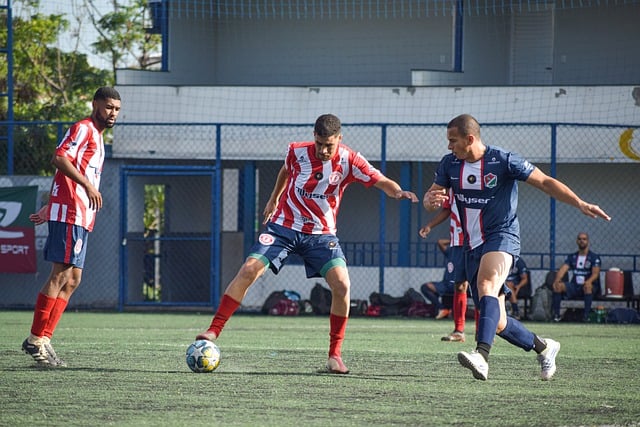In custody disputes, grandparent legal representation is essential to protect their rights and ensure their significant role in grandchildren's lives is preserved. Specialized family law attorneys help navigate complex systems, advocate for shared custody, visitation rights, and the best interests of the child, recognizing the unique value grandparents bring, including love, support, cultural transmission, and emotional stability. This representation guides grandparents through legal complexities, ensuring a stable environment for grandchildren, especially in cases where they take on primary caregiver roles. Support networks and advocacy groups also provide crucial resources and guidance.
In many custody disputes, grandparents play a vital role in a child’s life, often serving as primary caregivers or significant influences. Understanding their unique position is crucial when defending grandparent interests. This article explores the intricate world of grandparent legal representation, delving into the legal framework that supports their involvement, and highlights strategies to enhance their case. We navigate complexities when grandparents step into the role of primary caregivers and provide essential resources for a strong legal defense. Discover how grandparent legal representation ensures these vital family ties are protected.
- Understanding Grandparent's Role in Custody Disputes
- Legal Framework for Grandparent Legal Representation
- Evaluating Grandparent's Unique Contribution to a Child's Life
- Strategies for Effective Grandparent Legal Defense
- Navigating Complexities: When Grandparents Act as Primary Caregivers
- Resources and Support for Grandparents in Custody Battles
Understanding Grandparent's Role in Custody Disputes

In many custody disputes, grandparents play a vital role in the lives of their grandchildren and have a legitimate interest in their well-being. However, they often find themselves on the sidelines, with parents and legal systems primarily focusing on the child’s primary caregivers. This dynamic can be particularly challenging when grandparents seek to establish or maintain significant ties with their grandchildren. Grandparent legal representation becomes crucial in these situations, ensuring that their rights and concerns are given the attention they deserve.
Grandparents, armed with competent legal counsel, can navigate complex family law systems to advocate for shared custody arrangements, visitation rights, and the overall best interests of their grandchildren. Skilled lawyers specializing in grandparent rights can provide much-needed support, helping to protect and preserve the unique bond between grandparents and grandchildren during emotionally charged custody disputes.
Legal Framework for Grandparent Legal Representation

In many jurisdictions, grandparents’ rights are protected by specific laws and regulations that outline their role in custody disputes involving their grandchildren. The legal framework for grandparent legal representation is designed to ensure these rights are upheld and that grandparents have access to justice when fighting for custody or visitation privileges. These laws recognize the significant bond and unique relationship grandparents share with their grandchildren, which should not be easily disrupted.
Grandparent legal representation focuses on advocating for their interests in court proceedings, especially when parents are unable or unwilling to care for their children. It involves navigating complex family law systems to secure custodial or visitation rights, often involving extensive documentation, expert testimony, and legal arguments. Grandparents seeking this representation can rely on specialized family law attorneys who understand the nuances of grandparent-grandchild relationships and the applicable laws.
Evaluating Grandparent's Unique Contribution to a Child's Life

In custody disputes involving grandparents, it’s crucial to recognize and evaluate the unique contribution they make to a child’s life. Grandparents often play a significant role in a child’s upbringing, providing love, support, and a distinct perspective that can enrich their overall development. Their legal representation is essential to ensuring these contributions are recognized and protected during custody decisions.
Grandparent legal representation can help navigate the complexities of family law, advocating for the specific needs and desires of grandparents while also promoting the best interests of the child. This representation ensures that the court considers the positive impact grandparents have on a child’s life, including their ability to provide stability, cultural transmission, and emotional support—elements that may not be present in a primary caregiver’s household.
Strategies for Effective Grandparent Legal Defense

In defending grandparent interests in custody disputes, effective strategies involve securing robust grandparent legal representation. Legal professionals specializing in family law can navigate complex regulations and court procedures to advocate for a grandparent’s rights. They help establish a strong case by gathering relevant evidence, such as historical relationships, the child’s best interests, and any detrimental effects of separation from grandparents. These attorneys also ensure that all legal documents are accurately completed and filed, reducing potential errors or delays.
Additionally, these legal experts can effectively communicate with both courts and opposing parties to protect grandparental rights. They may request specific visitation rights, joint custody arrangements, or even primary physical custody if circumstances warrant it. Through strategic legal arguments and a comprehensive understanding of the law, they aim to preserve and strengthen the bond between grandparents and grandchildren, ensuring the child’s well-being and emotional stability remain paramount.
Navigating Complexities: When Grandparents Act as Primary Caregivers

Navigating Complexities: When Grandparents Act as Primary Caregivers
In many custody disputes, grandparents often find themselves in a challenging position—stepping up to fill the void left by absent or unable parents. This dynamic introduces complexities within legal proceedings, especially when grandparent legal representation is sought. The court’s primary consideration shifts from parental rights to the best interests of the child, which can be a delicate balance for grandparents who are not traditionally viewed as the primary caregivers.
Grandparent legal representation becomes crucial in these scenarios, ensuring their rights and roles are protected. Legal professionals specializing in family law can guide grandparents through the intricate process, advocating for their ability to nurture and care for their grandchildren while navigating the legal system’s requirements. This support is essential to foster a stable environment for children caught in custody battles.
Resources and Support for Grandparents in Custody Battles

Grandparents facing custody disputes often require specialized support, which includes access to skilled grandparent legal representation. Navigating complex family law can be daunting, especially when emotions run high during such conflicts. The right lawyer can provide crucial guidance tailored to grandparent-specific issues, ensuring their rights and interests are protected throughout the process.
Resources like grandparent advocacy groups and support networks can also offer a much-needed safety net. These organizations often supply valuable information on legal options, emotional coping strategies, and practical tips for maintaining relationships with grandchildren during and after custody battles. Such support systems empower grandparents to make informed decisions and advocate for their role in their grandchildren’s lives.














